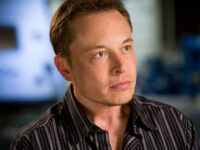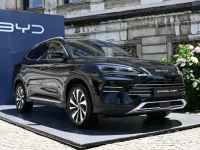
The US agency in charge of regulating road safety revealed Friday that they are probing Tesla’s self-driving software systems.
The evaluation by the National Highway Traffic Safety Administration (NHTSA) covers 2.4 million Tesla vehicles across multiple models manufactured between 2016 and 2024.
NHTSA’s action is the first step toward any potential recall that the agency might seek against the company, which is run by tech billionaire Elon Musk.
Tesla did not immediately reply on Friday to a BBC inquiry about the investigation.
NHTSA’s preliminary evaluation follows four crash reports involving the use of Tesla’s “Full Self-Driving”, or FSD, software.
The agency said the crashes involved reduced roadway visibility, with fog or glares from the sun.
One of the incidents involved a Telsa fatally striking a pedestrian, and another involved someone being injured, NHTSA said.
The evaluation aims to determine if Tesla’s self-driving systems can detect and appropriately respond to reduced visibility conditions. It also will examine if other self-driving crashes have happened under similar conditions.
In its notice, the agency noted that despite the label, full self-driving is actually “a partial driving automation system”.
NHTSA’s announcement comes one week after Mr Musk’s glitzy rollout of the Cybercab at the Warner Bros. studio lot in Burbank, California.
At the event, Mr Musk said the fully autonomous robotaxi concept, which operates without pedals or a steering wheel, would be on the market by 2027.
But some analysts and investors were unimpressed.
The company’s stock is down 8% since the Cybercab rollout. Shares were mostly steady after the notice from NHTSA.
Unlike Waymo, the self-driving venture operated by Google-parent Alphabet, Tesla’s autonomous systems rely largely on cameras and artificial intelligence.
Mr Musk’s approach costs less than deploying high-tech sensors like Lidar and radar, which are critical to Waymo’s driverless car program.
END



